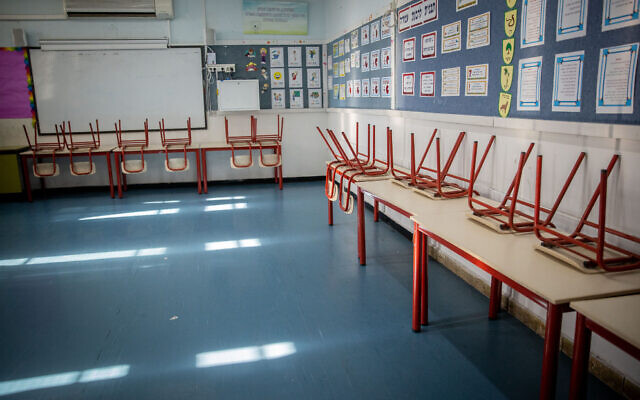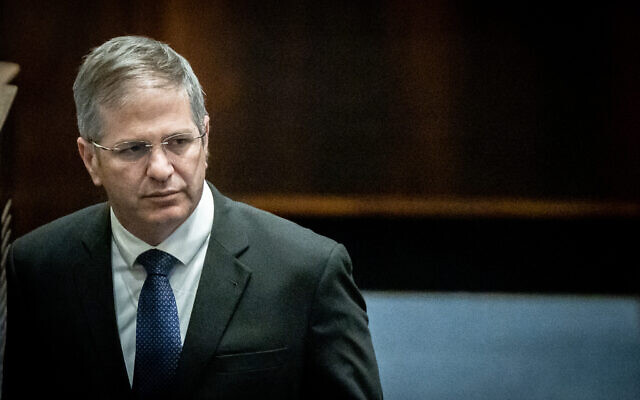Parents association calls middle, high school strike in anger at ministry, teachers
Students to stay home Wednesday; National Association says children used as tool in teachers’ wage dispute, protests against newly introduced humanities matriculation framework
Stuart Winer is a breaking news editor at The Times of Israel.

The National Parents Association on Sunday called for a student strike of the country’s middle and high schools later this week to protest the Education Ministry’s introduction of a new matriculation framework, and actions by teachers in their wage dispute with the ministry.
In a statement, the NPA said that it was calling on parents to keep students in grades 7-12 at home on Wednesday, but noted that activities to prepare for graduation, special education, and any off-campus events that can’t be rescheduled will not be included in the strike.
The strike action will come as the Knesset Education Committee meets to review the new matriculation plans.
In response, the Education Ministry said that as far as it is concerned studies will be held as usual, and accused the parents of “misleading” students.
Merom Shiff, chair of the National Parents Association, said that “our children have become playthings in the salary struggles of the teachers’ organizations.
“And if that is not enough, the Education Ministry is forcing our children to go back to outdated study methods and is increasing the number of exams,” she said in a statement.
“We cannot stand by in the face of these injustices and that’s why we decided to shut down the system, precisely on the day when the Education Committee deals with the issue,” Shiff said.

Last week Education Minister Yoav Kisch unveiled a new framework for humanities matriculation. Kisch intends to abolish a reform brought in under the previous education minister, Yifat Shasha-Biton, and move back toward the system that was in place in the past.
The plan Kisch unveiled was a midway point, incorporating some aspects of Shasha-Biton’s reform that aimed to modernize how students are assessed, while doing away with other aspects of the plan.
The new framework grants each school principal two options to choose from for humanities matriculation, with the final score being a combination of external examinations and school projects along with internal assessments.
At the launch, Kisch said, “The combination of an external matriculation exam with contemporary skills is the right way for Israeli students.”
Under Shasha-Biton’s reform, unveiled in April 2022, the written exams for history, literature, civics and Bible studies were to be replaced by class projects and multidisciplinary work, graded internally by each school alongside an external assessment.
“We regret the parents’ organization’s announcement. The organization is essentially wrong and misleading the students,” The Education Ministry said.
It noted that the parents are complaining about the impact on students of teacher strikes, and should therefore not be calling their own strike.
“Needless to say that the studies will take place as usual and we expect all parents to send their children to school as usual,” the ministry said.
The ministry defended the recently presented ‘flexible program’ for matriculation saying it has “broad support in the field from administrators, teachers, academics, etc.” and that it places less burden on the students.
Last Friday high school teachers said they would only begin classes at noon amid ongoing demands by the Secondary School Teachers’ Association that their minimum wage be raised to NIS 12,000 ($3,500) per month. In February teachers called a one-day strike over the issue.
Last October, the association took steps to protest a “standstill” in discussions on a collective agreement and employment conditions, announcing that teachers in grades 10 to 12 would not participate in any activity after school hours.









